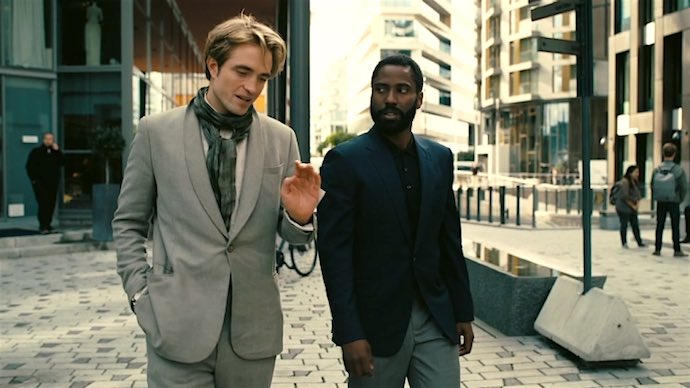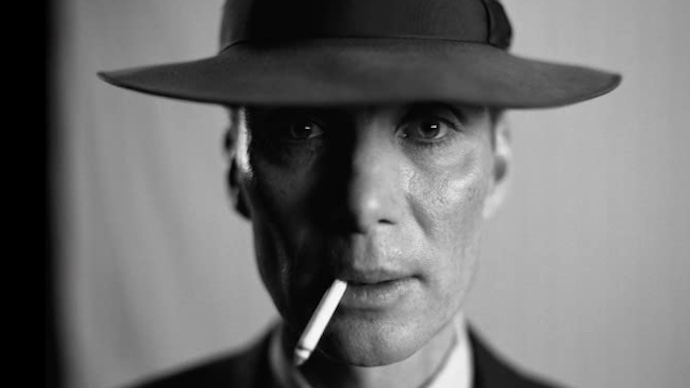Too much success can lead to an issue: audiences start losing sight of what you’re trying to say because you’re crafting from a position of success. You do it with a view that’s now skewed by fame and fortune. Christopher Nolan found that out with Tenet. For a long time, his films were financial and critical successes because he had a keen eye for the craft. Christopher Nolan, after all, is a man who possesses an intricacy that few other filmmakers can claim. Has Christopher Nolan lost his unique touch? No, that’s not what we’re saying. His pursuit of quality still remains as vigilant as ever! But his approach to narrative structure has finally come undone. Many saw it coming. Nolan’s movies were always built on layers of complexity, and each subsequent success led to increasingly greater entanglements—to the point where his hubris eventually led him too far. With Tenet, audiences and critics knew he’d finally reached his limit. And in the aftermath of Tenet’s confusing failure, Christopher Nolan appeared to lash out without his usual measure of control. It’s not like the reviews for Tenet were scathing, and it’s not like it was a total bomb at the box office. For a film that came out at the height of the pandemic, the numbers weren’t bad at all. The situation and the his reaction represented a fall for Nolan. While people were suffering through hard times and unable to visit theaters, he seemed deaf to it all—and even worse, he criticized streaming platforms and their release models as harmful to cinema. With that, he finally showed how out of touch he is with the modern era of cinema. It even led to a dispute between Christopher Nolan and Warner Brothers over HBO Max, resulting in him leaving the studio to find a new home at Universal for his next project, Oppenheimer. This once-great filmmaker is now reduced to arguing with studio bosses and openly rejecting services that allow people to watch new movies even as a virus disrupts the outside world. Chris has fallen from his perch. At this point, Christopher Nolan has had to confront some hard truths about the modern film industry and movie culture. Is Nolan as good as Paul Thomas Anderson or Bong Joon-ho? No, he never has been. But are his epic films still able to draw crowds to theaters? Yes, more so than perhaps any other modern film director. Which means Christopher Nolan now faces an uncertain future that doesn’t fit with his own vision of what he wants it to be. His traditionalist view is being peeled away by modern audiences. Ladies and gentlemen, welcome to the fall of Christopher Nolan.
Christopher Nolan’s Narrative Concepts
Over the years, Christopher Nolan has excelled at layering his narrative concepts in a non-linear fashion to make sure it keeps the audience on the edge of their seats, while extracting maximum intrigue from the plot. Memento, Inception, Interstellar, and Tenet all use their timelines to make the audience question what’s happening in the film. It’s a trick that many great filmmakers have employed to keep their story flow interesting. Outside of The Dark Knight trilogy, every Nolan film relies on narrative complexities that employ non-linear techniques in various ways. Problems started to arise, however, when his ambition to use time as a layered construct went beyond his filmmaking ability. With Tenet, he simply confused audiences and critics. His prior successes arguably convinced Nolan that his narrative ideas were infallible, that his trademark complexity was universally desired. To be blunt, Tenet felt lazy for Nolan. It’s the work of a filmmaker/director who’s too comfortable in their own skin. Great filmmakers always challenge what they know and what they can do—as evidenced by Kubrick, Welles, Coppola, and Anderson—but Nolan appears to have lost himself within an inflated sense of grandeur.
Christopher Nolan’s Fallout With Warner Brothers, Explained
When Tenet failed, which ended with an estimated total loss of around $100 million for the studio, we saw how the iconic director had started to lose his calm demeanor. He flailed around and insulted streaming services—he even had to apologize to the head of Netflix for comments he made—and shockingly savaged Warner Brothers’ HBO Max in an interview when he called it “the worst streaming service.” The individual incidents may not be connected to Tenet, but the overall picture feels like too much to be a mere coincidence. Obviously, Christopher Nolan worked hard on the film—that’s not in question—and any major director would be disappointed by less-than-stellar reception. But with Tenet, for the first time in his filmmaking career, it felt as though his style was coming under fire. As a staunch traditionalist, Christopher Nolan has often voiced his preference for theatrical releases. And while that in itself isn’t a bad position to take by any means, he seems to lack empathy for modern viewers and how they want their movies delivered to them. The spiraling cost of cinema trips combined with the relatively inexpensive cost of in-home streaming has forced the industry to change in the years that Nolan has worked within the studio system. His departure from Warner Brothers (which feels right out of 1950s Hollywood) and move to Universal Pictures marked an end of an era for the filmmaker. But it’s also the start of a new one. Christopher Nolan will never be a bad filmmaker; he’s too good at what he does for that. But he’s stagnating and needs to come to terms with the world that now exists around him. Meanwhile, we’ll wait with bated breath to see Oppenheimer, which could very well be another hit. Read next: Cinema deal-breakers and why I stopped going to movie theaters





